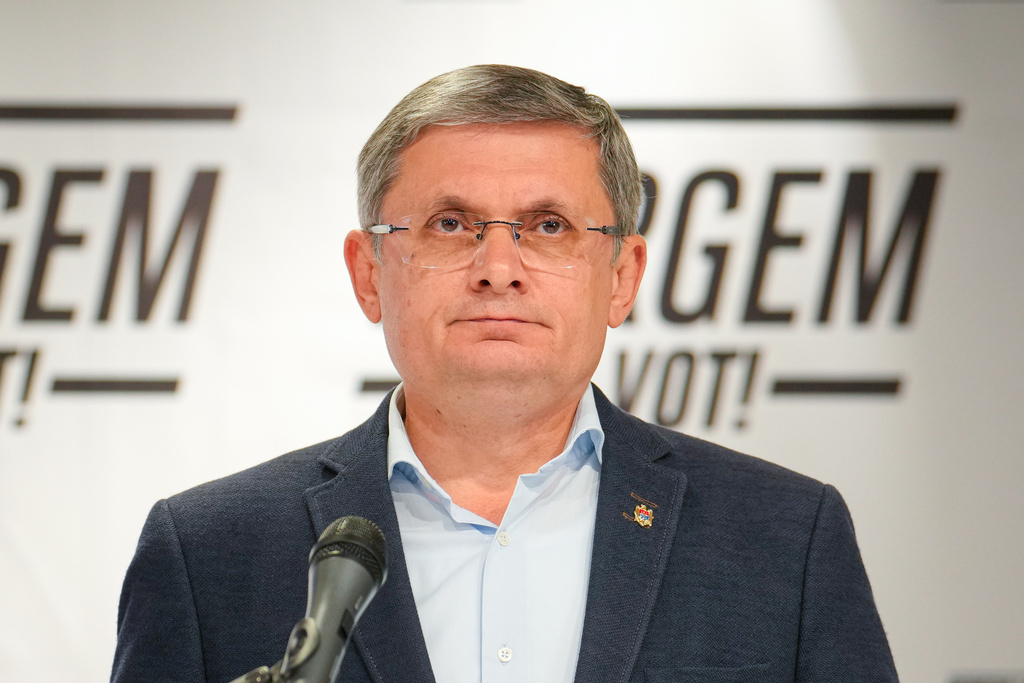Moldova's Pro-EU Party Leads Amid Russian Interference Claims

Moldova’s Pro-Western Party Gains Strong Lead in Parliamentary Election
Moldova's pro-Western ruling party has emerged as the clear winner in a pivotal parliamentary election, which was heavily influenced by allegations of Russian interference. The election was seen as a crucial decision for the country's future, with voters choosing between aligning with the European Union or returning to Moscow's influence.
The governing Party of Action and Solidarity, which has held a strong majority in parliament since 2021, is now on track to secure a significant number of legislative seats. With over 95% of polling stations reporting results, the party received 48% of the vote, while the pro-Russian Patriotic Electoral Bloc came in second with 25.6%. Other notable parties include the Alternativa Bloc with 8.3%, Our Party at 6.3%, and the right-wing Democracy at Home party with 5.7%.
Election Day Challenges and Concerns
Election day was marked by several incidents that raised concerns about the integrity of the process. These included bomb threats at polling stations abroad, cyberattacks on electoral and government infrastructure, and reports of voters photographing their ballots. Some individuals were also illegally transported to polling stations, raising questions about potential vote-buying activities.
In addition, police detained three people suspected of planning to cause unrest following the election. These actions highlight the heightened tensions surrounding the vote, as both domestic and international observers closely monitored the situation.
Voter Turnout and the Role of the Diaspora
The election saw a voter turnout of approximately 51.9%, with over 1.59 million eligible voters casting their ballots. An estimated 276,000 Moldovans voted at polling stations set up abroad, which remained open until 7 p.m. in their respective countries. The large Moldovan diaspora is expected to play a significant role in determining the final outcome.
In the previous year’s presidential runoff, which was also seen as a choice between East and West, a record number of 327,000 voters cast ballots abroad. More than 82% of these voters supported President Maia Sandu, who is known for her pro-Western stance.
Allegations of Russian Interference
The election was widely viewed as a test of Moldova’s ability to counter what it describes as a “hybrid war” conducted by Russia. Officials have long accused Russia of spending hundreds of millions of euros to influence the election and undermine Moldova’s path toward the EU.
Igor Grosu, leader of the Party of Action and Solidarity, stated that Russia’s attempts to interfere in the election were significant. He emphasized that state institutions worked to ensure the security and integrity of the voting process. However, he noted that the full consequences of this interference are still unclear.
President Sandu also reiterated her claims of Russian interference, stating that she voted to maintain peace and ensure Moldova’s future lies within the EU. She highlighted the importance of the election as a critical moment for the country.
Long-Lasting Fears of Russian Influence
Alleged Russian strategies include large-scale vote-buying operations, cyberattacks, plans to incite mass riots around the election, and a disinformation campaign aimed at reducing support for the pro-European ruling party. Just before the vote, police conducted hundreds of raids, detaining individuals allegedly trained in Serbia to cause unrest and destabilize the country.
Despite these allegations, Russia has consistently denied any involvement in Moldova’s elections, dismissing the claims as “anti-Russian” and “unsubstantiated.” However, Moldovan police reported information about groups planning to create disorder during protests in Chisinau.
Election Day Incidents and Voter Concerns
Multiple incidents were reported on election day, including bomb threats targeting polling stations abroad, which temporarily prevented voters from casting their ballots. Cyberattacks on electoral infrastructure and government services were also reported, though they were quickly addressed.
President Sandu mentioned reports of voters being illegally transported to polling stations and cases where blank ballots were removed and later reintroduced. A non-governmental organization monitoring the election, Promo-Lex, documented numerous irregularities, including unauthorized individuals at polling stations and voters photographing their ballots.
Economic Challenges and Public Sentiment
As Moldova faces ongoing economic challenges, including high inflation, rising living costs, and poverty, some voters may have shifted their support away from the pro-European ruling party. This could impact the party’s performance in the election.
Economist Cristian Iftodi, who was born after Moldova's independence, described the election as the most important in the country's history. He emphasized the significance of Moldova's role in the EU's efforts to counter Russian influence.
For young voters like Igor Mihailov, a 26-year-old student, the main priority is for the government to act in the best interests of the people rather than pursuing its own agenda.
Post a Comment for "Moldova's Pro-EU Party Leads Amid Russian Interference Claims"
Post a Comment